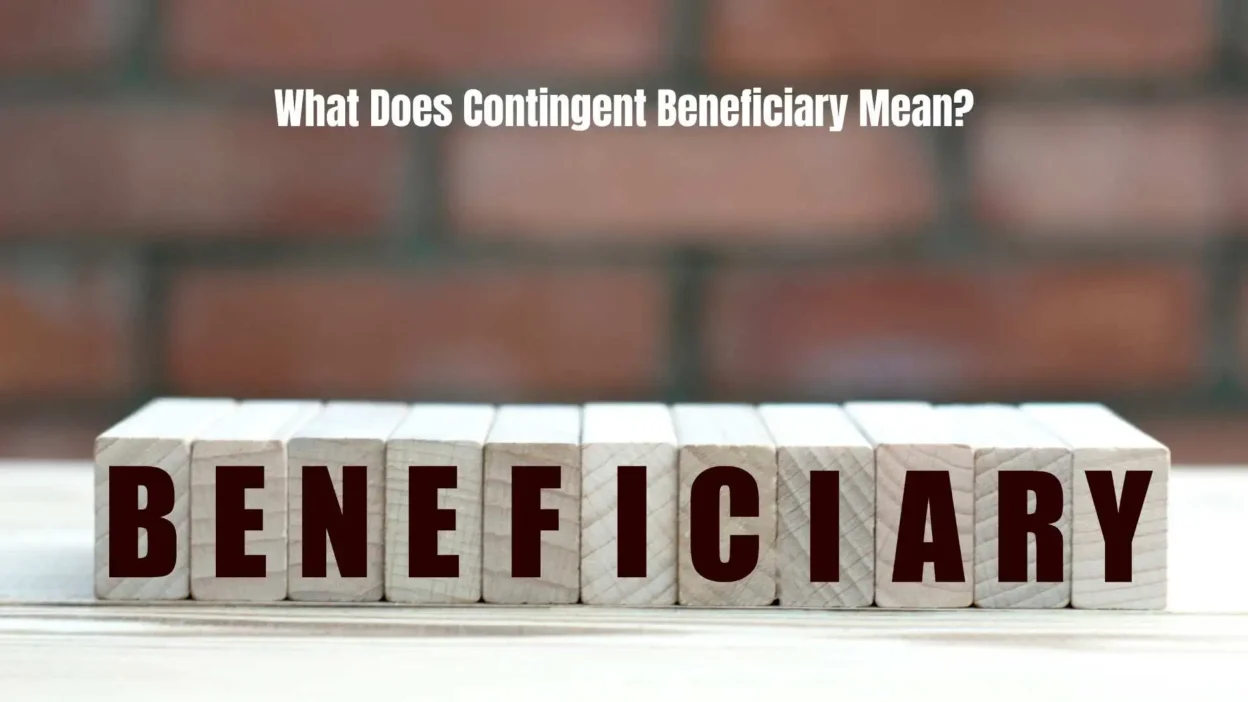Have you ever been filling out an insurance form, a retirement plan, or even a bank account document and stumbled upon the term “contingent beneficiary” and thought, “Wait… what does that even mean?” 😅
I remember seeing it the first time and feeling totally lost. It sounded serious and official, but I had no clue how it applied to me.
If you’ve ever wondered what does contingent beneficiary mean?, you’re not alone.
This guide will break it down in simple words, show you where it’s used, and even give real examples so you’ll never feel confused again.
Quick Answer: A contingent beneficiary is a person designated to receive assets or benefits only if the primary beneficiary cannot. It’s a clear, practical way of ensuring your money or assets go exactly where you want, without any complications.
What Does Contingent Beneficiary Mean in Text?
A contingent beneficiary is essentially a backup plan. It’s someone you name to inherit your assets, insurance benefits, or retirement accounts if your primary beneficiary is unavailable—maybe they passed away or cannot claim the benefit for some reason.
Example Sentence:
“I set my sister as the primary beneficiary and my cousin as the contingent beneficiary, just in case.”
In short: Contingent Beneficiary = Backup recipient = The person who gets the assets if the primary can’t.
Where Is Contingent Beneficiary Commonly Used? 📱
While it’s not exactly “slang,” the term often pops up in the following situations:
- 🏦 Bank accounts — when you name someone to inherit funds.
- 🏠 Life insurance policies — ensuring your benefits go to someone specific.
- 💼 Retirement plans — like 401(k)s or IRAs.
- 📄 Legal documents — wills, trusts, and estate planning.
Tone: Mostly formal and professional, but understanding it in casual conversations helps avoid confusion. Think of it as essential financial vocabulary.
Examples of Contingent Beneficiary in Conversation 💬
Here are some realistic ways you might see or use this term in texts, emails, or social chats:
- A: “Hey, did you fill out the life insurance form yet?”
B: “Yeah, I made my brother the primary and Mom the contingent beneficiary.” - A: “Why do you need a contingent beneficiary?”
B: “It’s just a backup, in case something happens to the first person I chose.” - A: “I’m so confused by these forms 😅”
B: “Contingent beneficiary is just the person who gets your stuff if the primary can’t.” - A: “Can I change my contingent beneficiary later?”
B: “Yep, most plans let you update it anytime.” - A: “Who did you pick as your contingent beneficiary?”
B: “My cousin, just in case something happens to my sister.” - A: “Is this the same as a secondary beneficiary?”
B: “Exactly, they both mean backup person.”
When to Use and When Not to Use Contingent Beneficiary 🕓
✅ When to Use
- Filling out life insurance policies
- Naming beneficiaries for retirement accounts
- Drafting wills and trusts
- Ensuring backup recipients in financial planning
❌ When Not to Use
- Casual texting among friends (they might not understand)
- Urgent legal or financial instructions without clarity
- Conversations where formal terminology is unnecessary
Comparison Table:
| Context | Example Phrase | Why It Works |
| Friend Chat | “I made my cousin the backup beneficiary 😄” | Casual & informative |
| Work Chat | “Please confirm the contingent beneficiary.” | Clear & professional |
| “Attached are the details of my contingent beneficiary.” | Formal & precise | |
| Legal Doc | “The contingent beneficiary shall inherit the assets if the primary predeceases.” | Formal & legally binding |
Similar Slang Words or Alternatives 🔄
Even though contingent beneficiary is formal, there are related terms and simpler ways to describe it:
| Term | Meaning | When to Use |
| Secondary Beneficiary | Another name for backup recipient | Financial forms & casual explanation |
| Backup Recipient | Plain English for contingent beneficiary | Texts or informal chats |
| Alternate Beneficiary | Someone who inherits if the primary can’t | Legal documents |
| Successor Beneficiary | Next in line for assets | Estate planning & official forms |
FAQs About Contingent Beneficiary ❓
Q1: Can I have multiple contingent beneficiaries?
Yes! Most policies and accounts allow you to name more than one. They will receive the assets in proportion if the primary can’t.
Q2: Can I change my contingent beneficiary?
Absolutely. Most financial institutions let you update it anytime.
Q3: Is a contingent beneficiary required?
Not always, but it’s highly recommended to ensure your assets go where you want.
Q4: How is a contingent beneficiary different from a primary beneficiary?
The primary beneficiary gets the assets first. The contingent only gets them if the primary cannot.
Q5: Is this term only used for life insurance?
No, it applies to bank accounts, retirement plans, wills, and trusts too.




